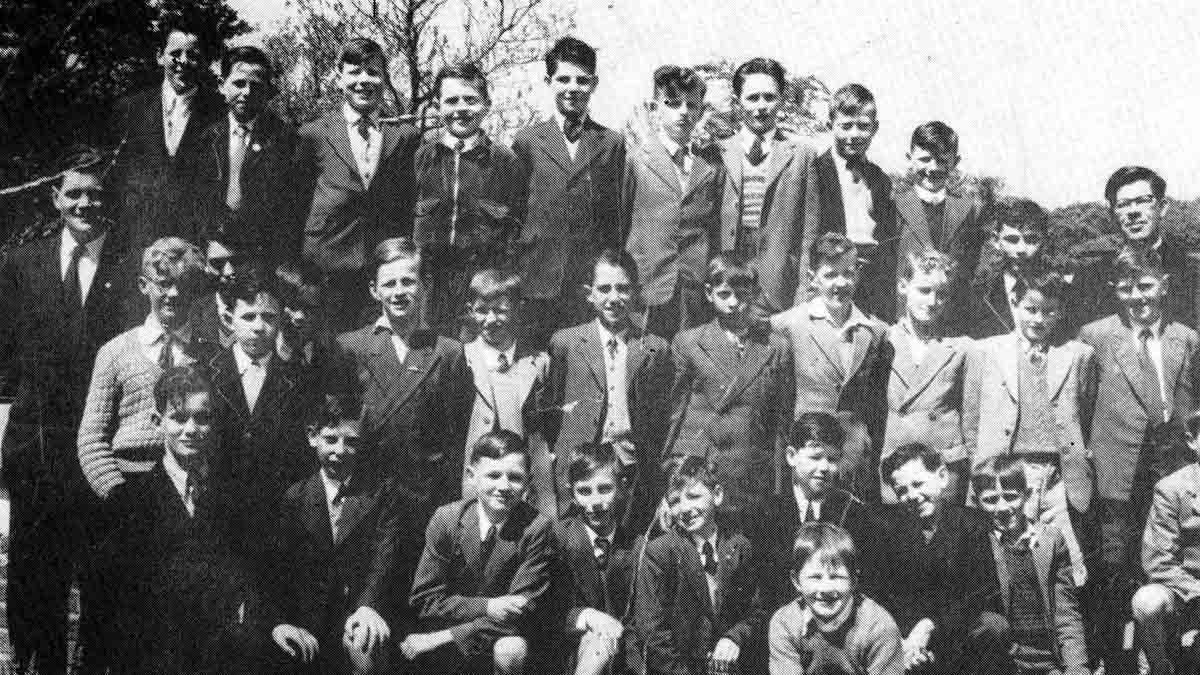BY JOHN FITZGERALD
Part 3
Like Martin Lynch, pupil Sean Holden (son of War of Independence hero Lyda Holden) had frequent words of praise for his teachers. In the 1930s He attended the Christian Brothers School in West Street, Callan. He recalled the brothers as tough, committed, deeply religious and highly motivated men, who cared “beyond the call of duty” about the educational prospects of pupils.
The daily classroom routine could be an endurance test for pupils as well as teachers. No schoolboy enjoyed learning, Sean discovered. It was a necessary evil to prepare you for life, a penance to endure.
But CBS pupils of the 1930s and 40s loved the annual outings the brothers arranged for them, and the concerts organised by Brother Redmond, in which he brought the old patriotic and historical themes to life on the stage of the Parochial Hall.
Every pupil in the school had a role to play. Nobody was left out. Brother Redmond saw the concert less as a showcase for talent than as a means by which the boys could acquire the essential confidence and self-assertiveness skills they would need later on.
Jimmy Walsh of Green Lane, though he attended the Academy and not the CBS, remembered Brother Redmond as a “Living Saint” who couldn’t do enough to help pupils, especially those who wished to enter secondary school but whose families couldn’t afford the cost.
Where he could, the kindly brother somehow procured the money to help these pupils, who, unlike today, did not benefit from a system of free education.
Brother Cullen, whom Sean commended as a “man of great wisdom and compassion”, took over as Superior at the CBS in 1943. He was the driving force behind the high profile ceremonies at Westcourt in 1944 marking the Centenary of Edmund Rice’s death.
Thousands of people attended this event, including the Bishop of Ossary, scores of priests, and members of the army and LDF. Sean felt that Brother Cullen himself greatly honoured the teachings and example of the Founder in the way he helped pupils.
Sean emphasised that though the brothers ran the school, lay teachers also taught there. One that stood out in his memory was Secondary School teacher, Bill Hennessy. A native of Coolagh, he also trained the school hurling team in his younger days, helping to win numerous honours for the CBS.
While commending the educational commitment of both the brothers and their lay colleagues, Sean noted that they “took no prisoners” in the classroom. Their actions in this respect were of course typical of teaching practises of that era.
Every new teacher arriving at an Irish primary or secondary school in the 1930s and 40s was given a regulation leather strap, a bamboo shoot, or a metre long stick, or maybe all three of these.
The teacher enjoyed considerable latitude in how he or she proposed to apply the instruments of corporal punishment. Though Department of Education guidelines stipulated that only disruptive or violent pupils could be whacked, teachers routinely punished pupils for just about any offence, real or perceived. The official punishment guidelines set down by the Department were completely ignored in most schools.
In the late 1930s, Sean experienced the positive side of the “boot camp” style schooling of the time, side by side with its now controversial drawbacks.
In an interview I conducted with him at his home in 2001, and that continued into the late hours at the Cosy Inn pub, he painted a vivid picture of a 1939 Callan primary school classroom on a typical day. He rhapsodised:
“Most of our teachers used the stick or the leather. There was one man who seemed to love dishing out a good beating. You’d be sitting at your desk, and he’d be walking up and down, reciting lines of poetry or Irish verbs, or maybe a bit of history.
“Then, suddenly, without any warning, he’d spot a lad he thought wasn’t paying attention…”
To be continued…




















